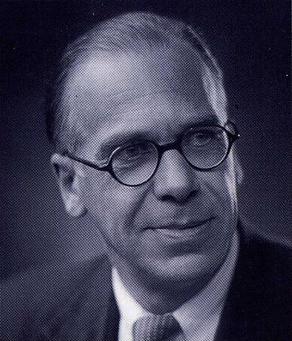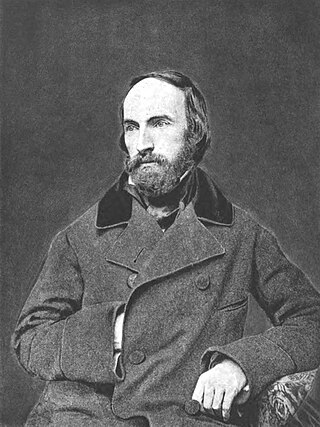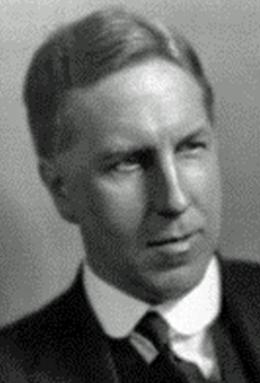Related Research Articles

Daniel Jenkyn Jones was a Welsh composer of classical music, who worked in Britain. He used both serial and tonal techniques. He is best known for his quartets and thirteen symphonies and for his song settings for Dylan Thomas's play Under Milk Wood.

Richard Stewart Addinsell was an English composer, best known for film music, primarily his Warsaw Concerto, composed for the 1941 film Dangerous Moonlight.

William Alwyn, was an English composer, conductor, and music teacher.
The Warsaw Concerto is a short work for piano and orchestra by Richard Addinsell, written for the 1941 British film Dangerous Moonlight, which is about the Polish struggle against the 1939 invasion by Nazi Germany. In performance it normally lasts just under ten minutes. The concerto is an example of programme music, representing both the struggle for Warsaw and the romance of the leading characters in the film. It became very popular in Britain during World War II.
Haydn Wood was a 20th-century English composer and concert violinist, best known for his 200 or so ballad style songs, including the popular Roses of Picardy.
Howard David Blake is an English composer, conductor, and pianist whose career has spanned more than 50 years and produced more than 650 works. Blake's most successful work is his soundtrack for Channel 4’s 1982 film The Snowman, which includes the song "Walking in the Air". He is increasingly recognised for his classical works including concertos, oratorios, ballets, operas and many instrumental pieces.
Buxton Daeblitz Orr was a Glasgow-born Anglo-Scottish composer and teacher.
Clifton Parker was a British composer, particularly noted for his film scores. During his career, he composed scores for over 50 feature films, as well as numerous documentary shorts, radio and television scores, over 100 songs and music for ballet and theatre.

William Henry Fry was an American composer, music critic, and journalist. Fry was the first known person born in the United States to write for a large symphony orchestra, and the first to compose a publicly performed opera. He was also the first music critic for a major American newspaper, and he was the first known person to insist that his fellow countrymen support American-made music.

Doreen Mary Carwithen was a British composer of classical and film music. She was also known as Mary Alwyn following her marriage to William Alwyn.
John Douglas Louis Veale was an English classical composer.
Nigel John Hess is a British composer, best known for his television, theatre and film soundtracks, including the theme tunes to Campion, Maigret, Wycliffe, Dangerfield, Hetty Wainthropp Investigates, Badger and Ladies in Lavender.
Adam Von Ahnen Carse was an English composer, academic, music writer and editor, remembered today for his studies on the history of instruments and the orchestra, and for his educational music. His collection of around 350 antique wind instruments is now in the Horniman Museum.
Anthony Vincent Benedictus Collins was a British composer and conductor. He scored around 30 films in the US and the UK between 1937 and 1954, and composed the British light music classic Vanity Fair in 1952. His Decca recordings of the seven Sibelius symphonies was the second cycle by a single conductor and orchestra released.

Thomas Frederick Dunhill was a prolific English composer in many genres, though he is best known today for his light music and educational piano works. His compositions include much chamber music, a song cycle, The Wind Among the Reeds, and an operetta, Tantivy Towers, that had a successful London run in 1931. He was also a teacher, examiner and writer on musical subjects.
Carlo Martelli is an English composer and viola player of Italian extraction who saw early success and high profile performances with his orchestral and chamber music concert works, but later turned to light music and film scores. He is particularly known for his idiomatic arrangements of music for strings.

Richard Roy Douglas was an English composer, pianist and arranger. He worked as musical assistant to Ralph Vaughan Williams, William Walton, and Richard Addinsell, made well-known orchestrations of works such as Les Sylphides and Addinsell's Warsaw Concerto, and wrote a quantity of original music.
Philip Christian Darnton, also known as Baron von Schunck, was a British composer and writer.
Theodore Samuel Holland, OBE, was a British composer and academic. Born in Wimbledon, Holland attended Westminster School and then the Royal College of Music, where his composition teacher was Frederick Corder. A further period of study followed at the Musikhochschule in Berlin under Joseph Joachim.

Kenneth Alwyn Wetherell was a British conductor, composer, and writer. Described by BBC Radio 3 as "one of the great British musical directors", Alwyn was known for his many recordings, including with the London Symphony Orchestra on Decca's first stereophonic recording of Tchaikovsky's 1812 Overture. He was also known for his long association with BBC Radio 2's orchestral live music programme Friday Night is Music Night, appearing for thirty years as a conductor and presenter, and for his contribution to British musical theatre as a prolific musical director in the 1950s and 1960s. He was a Fellow of the Royal Academy of Music and married the actress Mary Law in 1960. His website and the first volume of his memoirs A Baton in the Ballet and Other Places were both published in 2015. The second volume Is Anyone Watching? was published in 2017.
References
- 1 2 3 4 5 Philip Lane Archived 26 December 2005 at the Wayback Machine at the Robert Farnon Society, accessed 16 November 2010 [ dead link ]
- 1 2 3 Edmund Whitehouse, Biography, Musicweb.
- 1 2 3 2009 Honorary doctorates Archived 18 November 2010 at the Wayback Machine , University of Gloucestershire.
- 1 2 Hubert Culot, Philip Lane CD review, accessed 16 November 2010.
- ↑ "Philip Lane: A Spa Overture".
- ↑ Edmund Whitehouse, CD notes to Philip Lane: Orchestral Works (Marco Polo)
- ↑ Night Before Christmas reviews, Naxos.com.
- 1 2 3 4 Philip Lane, Reconstructing Film Scores, musicweb, 1998.